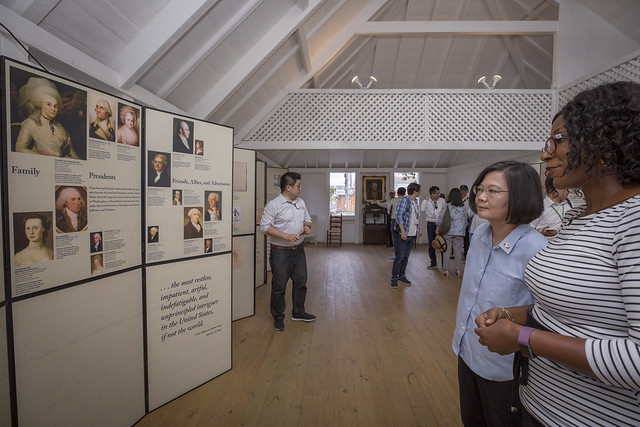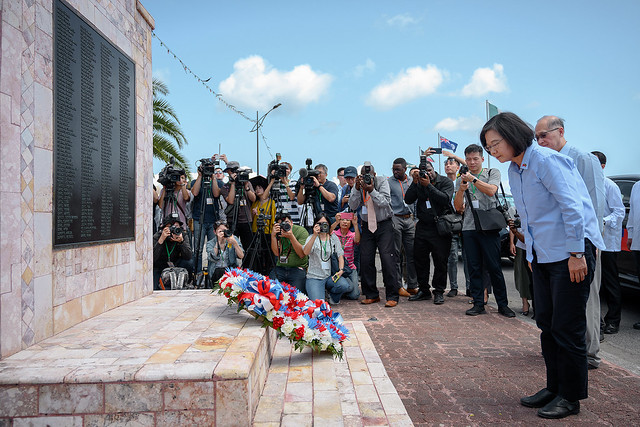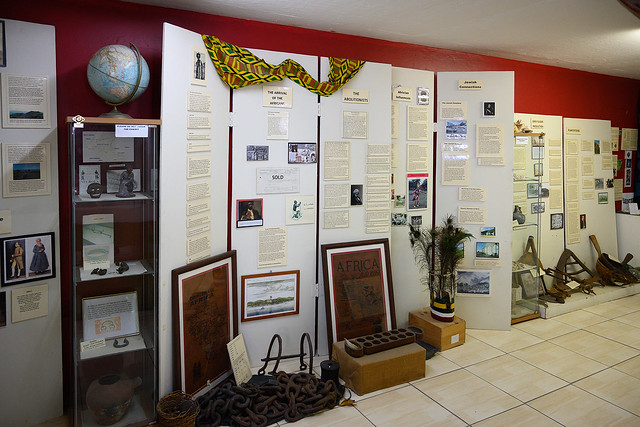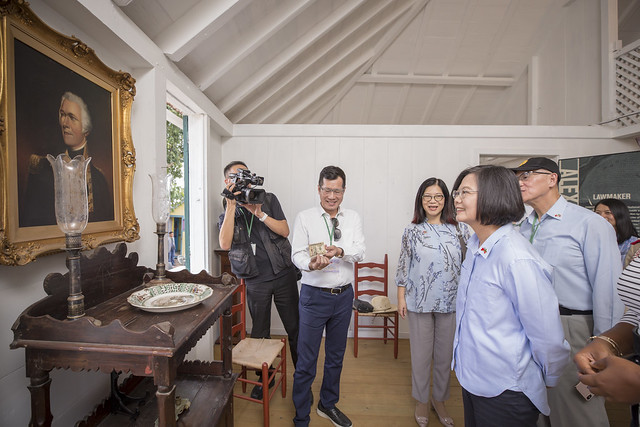News & activities
 News releases
News releases
On the afternoon of July 14 local time (early morning of July 15 Taipei time), President Tsai Ing-wen and her delegation, who are currently in St. Christopher and Nevis on her Journey of Freedom, Democracy, and Sustainability, visited the Museum of Nevis History and Alexander Hamilton's birthplace.
Upon arrival, President Tsai first paid respects at the Christena Memorial to the hundreds who died when a ferry boat—the MV Christena—sank between the islands of St. Kitts and Nevis in 1970. The president then proceeded to the Museum of Nevis History and Alexander Hamilton's birthplace, where she listened as a guide introduced historical facts about the island of Nevis.
The Museum of Nevis History is located next to the ferry terminal in downtown Charlestown, the capital of Nevis, and occupies a house where Alexander Hamilton, a founding father of the United States, was born. Hamilton took part in the drafting of the US Constitution, and was America's first Secretary of the Treasury. After living in Nevis until the age of eight, Hamilton moved with his parents to St. Croix in the US Virgin Islands, and later moved to New York.
Following her visit, President Tsai fielded questions from reporters. Asked about military drills that China recently carried out along its southeast coast, the president said she understood they were routine exercises, but noted that they do seem to routinely coincide with each of her overseas trips. Taiwan's armed forces closely monitored the drills from start to finish, and handled the matter very prudently. The president said that all parties bear a joint responsibility to maintain regional peace and stability, and we hope that China will take its responsibility seriously. This reminds us, she emphasized, that we need to strive on a daily basis to strengthen our national defense, improve our national defense self-sufficiency, and upgrade our self-defense capabilities.
Commenting on the recent passage by the US Congress of the National Defense Authorization Act and the approval of an arms sale to Taiwan, President Tsai said she didn't feel these actions were intentionally timed to coincide with her overseas trip. Rather, the US review process was recently concluded, and it was time to make an announcement. We continue to communicate with the United States regarding our national defense needs, she said, and we appreciate their willingness to sell arms to us.
Asked about a clash the day before between police and protesters in Hong Kong, the president called on the Hong Kong government to take a sincere and serious attitude in facing the demands of Hong Kong's people for democracy, freedom, and human rights. The Hong Kong government, she said, needs to sit down and communicate sincerely with the people of Hong Kong and treat their demands seriously. This, she believes, is what the people of Hong Kong really want, and she hopes the Hong Kong government will solemnly face up to the situation.












